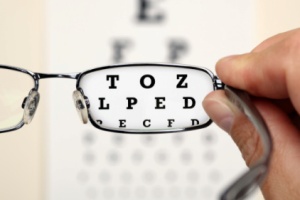 Good vision is not necessarily a requirement for many occupations, although it will make most jobs safer. There are a number of jobs where perfect vision is essential .
Good vision is not necessarily a requirement for many occupations, although it will make most jobs safer. There are a number of jobs where perfect vision is essential .
Eyesight and eye vision
First, what’s the difference between eyesight and eye vision?
“‘Eyesight” is limited to the ability to “see,” and is usually tested by having to identify numbers and letters on charts during an eye examination.
“Vision” is more complicated and combines eyesight with the ability of aiming, tracking, focusing as well as other mental, emotional and neurological processes. The fact that the eyes work well together is an example of good vision. You can have perfect eyesight but still have problems with your vision.
Jobs that require 20/20 vision
There are set vision standards for many occupations that specify standards for distance and near vision, color vision, depth perception and peripheral vision. (Keep in mind that these standards vary between occupations and employers.)
Having perfect vision in certain jobs can be a matter of life and death – which explains why the standards can be very strict.
In other jobs perfect vision is important and facilitates the job, but it is not a precondition for whether you can do the job or not – in this case there are no official standards that need to be met. Examples of these occupations could be photographer, fashion designer, any close work such as repairing watches or creating jewelry etc.
Here are some, not all, occupations that require nothing less than excellent vision:
Air Force pilot
Army pilots have some of the strictest eye vision requirements – no wonder considering the demanding and stressful conditions they confront. United Kingdom army pilots are only allowed to wear spectacles with a lens power between - 0.75 to 1.75 dioptres, which is not a lot at all. They also have to pass the color perception (Ishihara) test.
Air traffic controller
The responsibilities of air traffic controllers are significant. Even a minor error can have catastrophic consequences. As with other aviation industry jobs, eye vision standards are carefully outlined and need to be adhered to. For example, air traffic controllers in the UK may wear contact lenses but not to correct near vision.
Firefighter
A firefighter is exposed to smoke, heat, water and darkness. To be as efficient as possible and save as many lives as possible, good vision is paramount.
Airline pilot
Many people trust their lives in the hands of commercial airline pilots every day, and this requires a pilot to be healthy and fit in every way – including vision. There are very strict eye vision requirementsfor airline pilots; the initial medical examination even has to be carried out by specified medical centers.
Other occupations in the UK with eye vision standards include police officers; train, bus and taxi drivers; paramedics; lifeguards; astronauts; and navy officers.
Source:The Edinburgh Clinic
www.edinburghclinic.com
